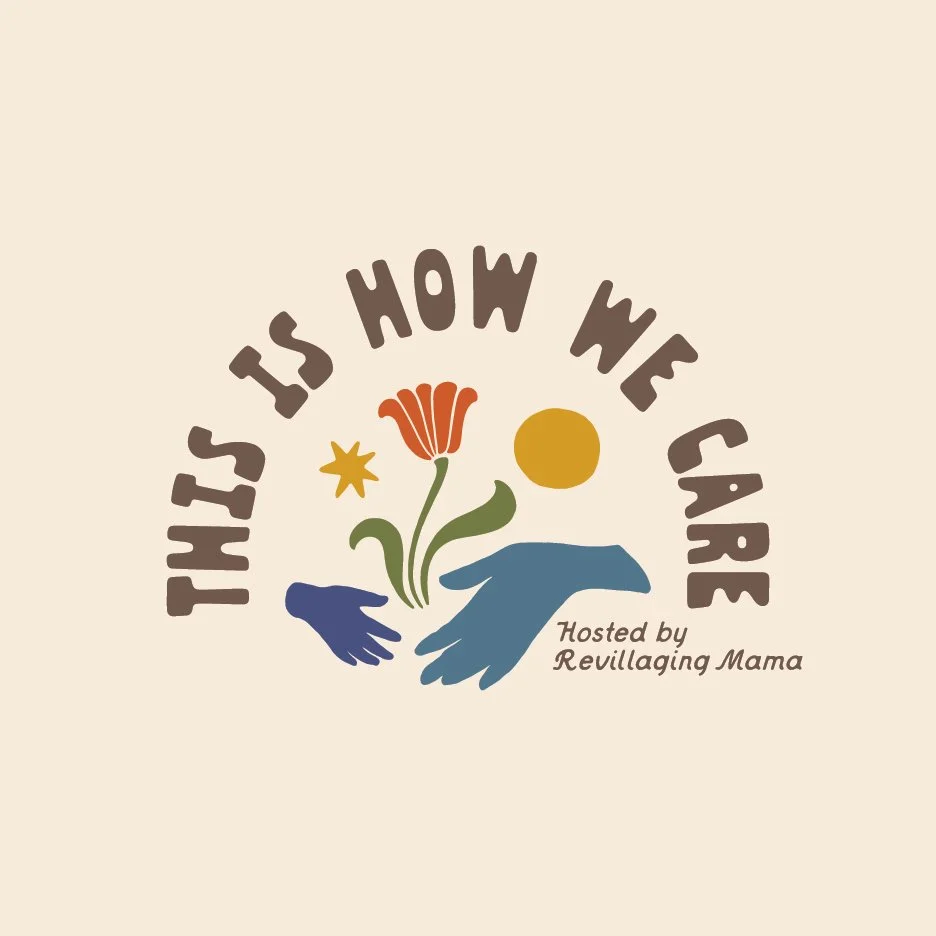S2E20: Grounding Practice with Toi Smith: An Excerpt From Undrowned: Black Feminist Lessons From Marine Mammals
About this episode:
In this Grounding Practice, Toi Smith—impact strategist and founder of Loving Black Single Mothers—shares a powerful grounding quote from Alexis Pauline Gumbs' book Undrowned: Black Feminist Lessons from Marine Mammals. This passage beautifully connects the struggles of marine mammals with systemic oppression and Black feminist theory. Toi reads a poignant excerpt that speaks to the shared experiences of confusion, struggle, and the need for community and care.
Follow @thisishowwecare on Instagram or signup for our newsletter for more practices and prompts to embody a world of collective care
You can also follow Toi on Instagram @toimarie
Loving Beyond Stereotypes at Loving Black Single Mothers
Check out “Undrowned: Black Feminist Lessons from Marine Mammals” by Alexis Pauline Gumbs
If you want to listen to the full episode that accompanies this Grounding Practice, check that out separately here.
Full Episode Transcript:
Emily Race-Newmark: [00:00:00] Welcome to This is How We Care, a podcast where we look at what it means to embody care, not as an individual practice, but a collective one, and to see what kind of world emerges from this place.
Thank you for being here. I am your host, Emily Race.
This grounding practice is brought to you by Toi Smith.
Please check out our full interview over at that separate episode, wherever you tune into This Is How We Care.
If you're able to, I invite you to now take the next couple of moments to move yourself into a space of openness and receptivity. You may want to shut out any external distractions. You can even pause this recording if that gives you some more time to get into a comfortable place.
With that, I will pass it over to Toi, who will read us a quote that grounds us in the conversation that we'll be having together.
Toi Smith: I like to call [00:01:00] in other people who have grounded me to bring grounding to others.
And so as I was thinking about the conversation we are going to have centered around my work, which is on the lens of, how we exist inside of these systems, I called in Alexis Pauling Gumbs, who is an author that I really, really love, and I'm going to read a passage from the book called Undrowned, and the subtitle is Black Feminist Lessons from Marine Mammals.
And it's a really, really, really, really, really rich book, connecting the lives of marine mammals to the connection of Black feminist theory. And it's a really interesting take.
And so this section that I want to read is just so beautiful. Just really ground in and listen to the words that she is holding for us because it's just so powerful.
Okay. Because I know what it feels like to be sick of systemic oppression and its cycle of extraction, the virus [00:02:00] impacting these dolphins presses on their lungs, their brains. They struggle to breathe. They swim in strange circles.
They end up far off course in a place that can't sustain them. Do you know something about this?
I, too have been moving in circles, confused.
I, too have been struggling to breathe.
I, too have wondered how did I get so far from what my body and spirit need?
And I thought I was done writing about striped dolphins, but so many of us are dizzy and labored. Bewildered and estranged.
So what would I say if I was a striped dolphin? I'd say, "I love you," and even on your sickest, saddest day, you deserve an ocean as blue as your name. You deserve a safety as deep as your need. You deserve food, community, school, and home. And you were not wrong to associate with your kindred, and you were not wrong to breathe loud about what you believed, and the dizziness you feel is justified.[00:03:00]
We are living in a world off course, and the pressure in your lungs is urgency. We have to learn the language of this air. We are sick of these tired cycles of economic vulnerability, resource grabs, and waste, and harm spiraling down. We are ready to breathe differently and evolve.
Emily Race-Newmark: Thank you for listening. If you enjoyed hearing from Toi, please head over to the full episode to see how that sets up the context for Toi's vision for collective care that she'll share with us . Hope to see you there.


